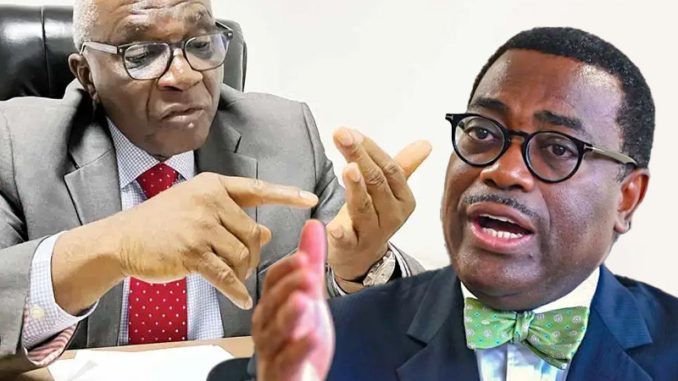
The presidency at the weekend picked holes in recent remarks by outgoing President of African Development Bank (AfDB), Dr. Akinwumi Adesina, that Nigerians today were worse off than they were at Independence in 1960.
Presidential spokesperson, Bayo Onanuga, in a formal reaction of The Presidency on Sunday night to Adesina’s submission, described his position as based on inaccurate data and a narrow assessment of Nigeria’s economic evolution.
Adesina had while speaking at a recent event, reportedly, cited figures – sourced from Nairametrics – suggesting that Nigeria’s GDP per capita was $1,847 in 1960, compared to $824 today.
In a post on his verified X handle @aonanuga1956, Onanuga dismissed the figures as “not correct,” emphasising that available historical data tell a markedly different story.
He stated, “According to available data, our country’s GDP was $4.2 billion in 1960, and per capita income for a population of 44.9 million was $93—ninety-three, not even one hundred dollars.
“Our GDP did not rise remarkably until the 1970s, when crude earnings ballooned.”
Quoting official statistics, Onanuga outlined Nigeria’s economic growth over the decades, acknowledging a rise in GDP to $12.55 billion in 1970, $27.7 billion in 1975, $64.2 billion in 1980, and $164 billion in 1981.
He added that per capita income remained under $880 until 1980 and peaked at $3,200 in 2014 after GDP rebasing.
“These facts raise questions about the source of Dr. Adesina’s figures,” Onanuga wrote, though he added that his main concern was not the discrepancy in numbers but rather the flawed interpretation derived from them.
According to the presidential spokesperson, GDP per capita alone is an inadequate measure of citizens’ wellbeing.
“It is a poor tool for assessing living standards,” Onanuga argued, explaining that it masks crucial economic factors, such as wealth distribution, informal economic activities, and access to public services.
He stated, “GDP per capita is silent on whether Nigerians, in 2025, enjoy better access to healthcare, education, and transportation than in 1960.
“Compared with 1960, Nigeria today has more primary, secondary, and tertiary schools. We have more road networks and more medical facilities, private and public. We have phenomenal access to telephones.”
Onanuga emphasised that at Independence, Nigeria had only 18,724 operational phone lines for a population of about 45 million.
“Today, over 200 million Nigerians enjoy near-universal access to mobile phones and digital services, indicating we are better off than 65 years ago,” he said.
He also made reference to the cautionary tale of Vodacom, a South African telecoms firm that pulled back from entering Nigeria’s market around 1999, on account of GDP-based assessments that wrongly concluded Nigerians could not afford mobile services.
According to Onanuga, “MTN and other companies that entered the market later proved them wrong.
“MTN and other adventurers came later, and they laughed all the way to the bank. In its first-quarter results this year, MTN declared revenue of N1 trillion and an increase of 8.2 percent in subscriptions, which took the number of its voice and data users to 84 million.”
Onanuga questioned whether such robust economic activity could align with Adesina’s suggestion of economic regression.
“Does this MTN experience correlate with a country worse off than in 1960, when we had analogue telephones and the number of lines was fewer than 20,000?” he asked.
Onanuga concluded, “No objective observer can claim that Nigeria has not made progress since 1960. Today, as we await the NBS’s recalibration of our GDP, we can comfortably say without contradiction that it is at least 50 times, if not 100 times, more than it was at Independence.”

